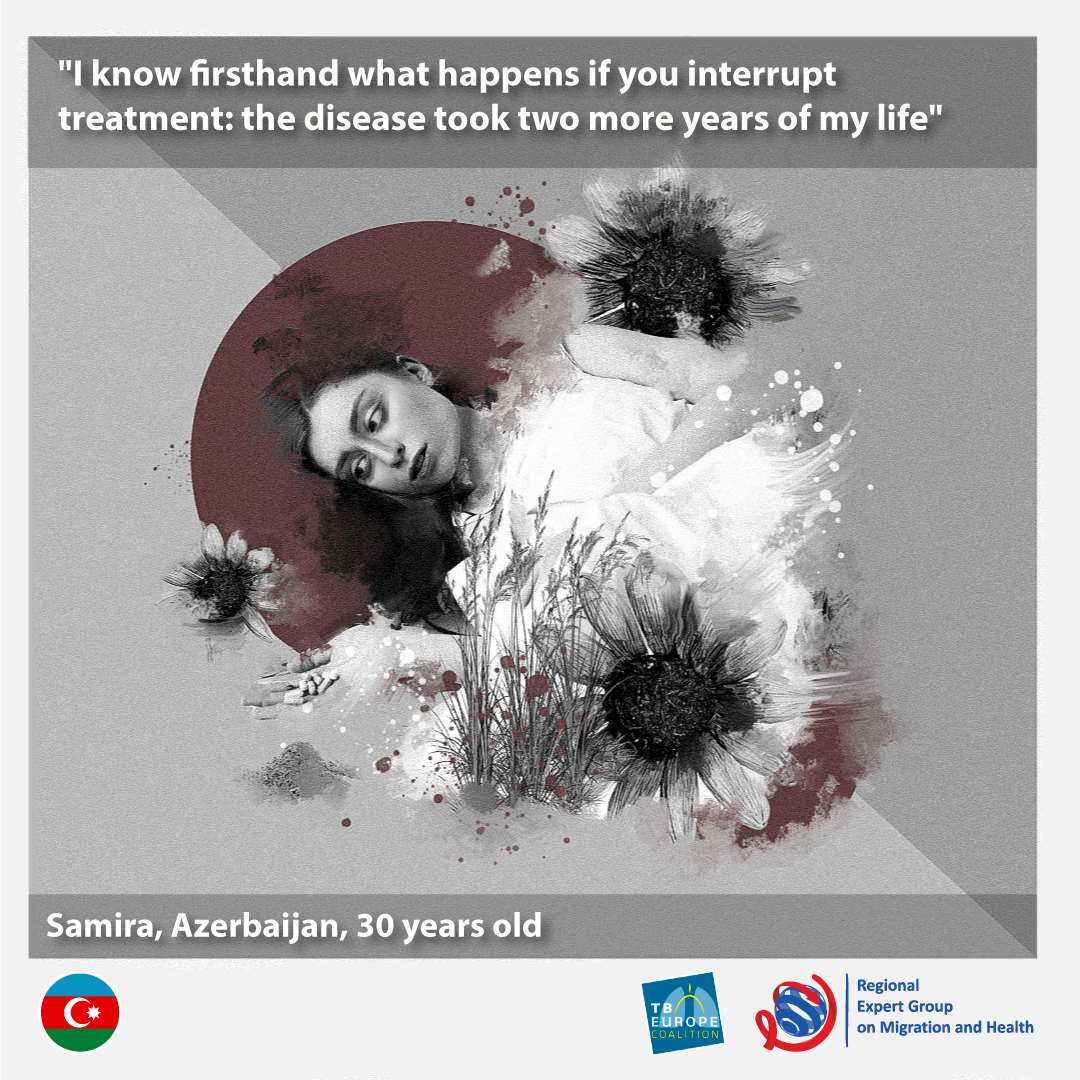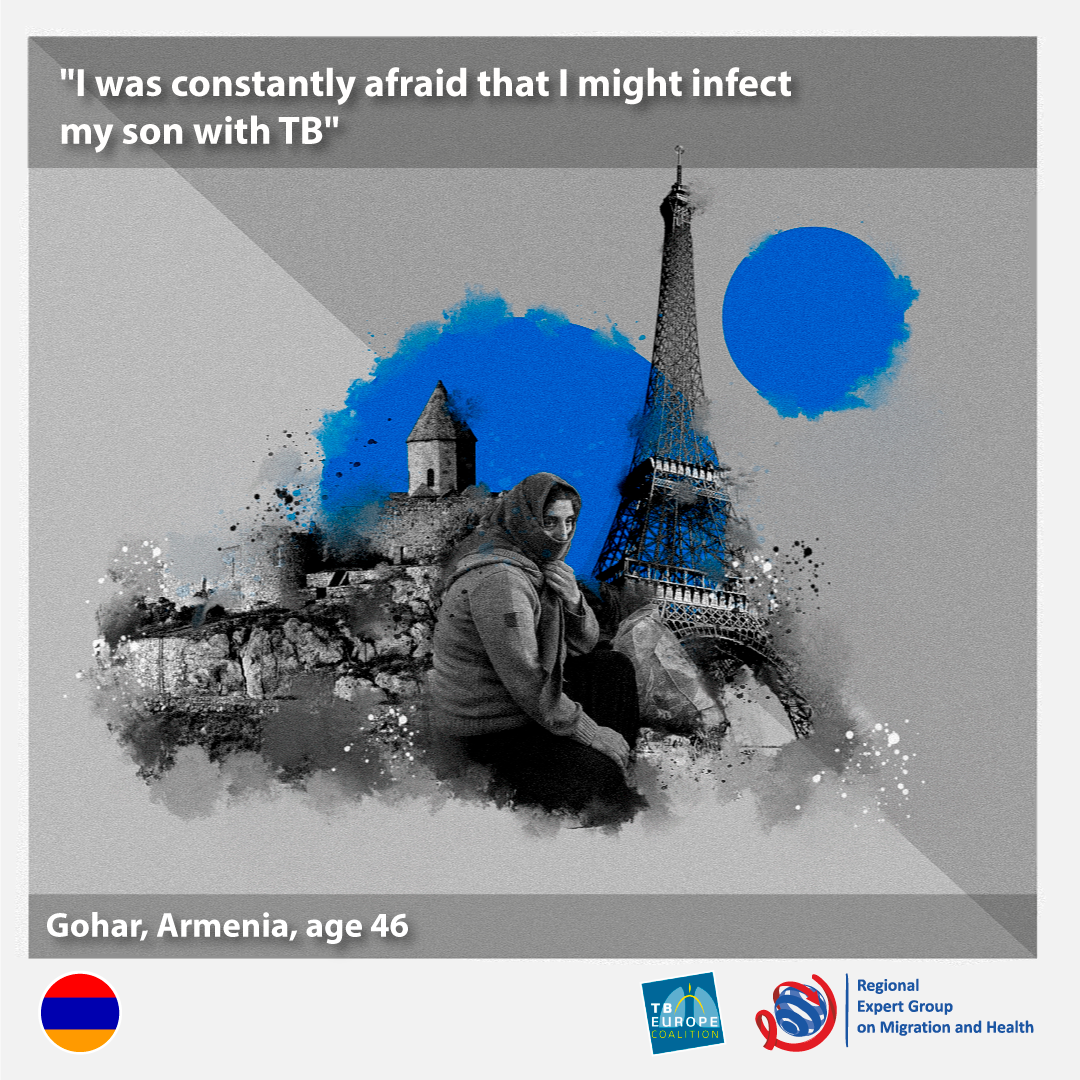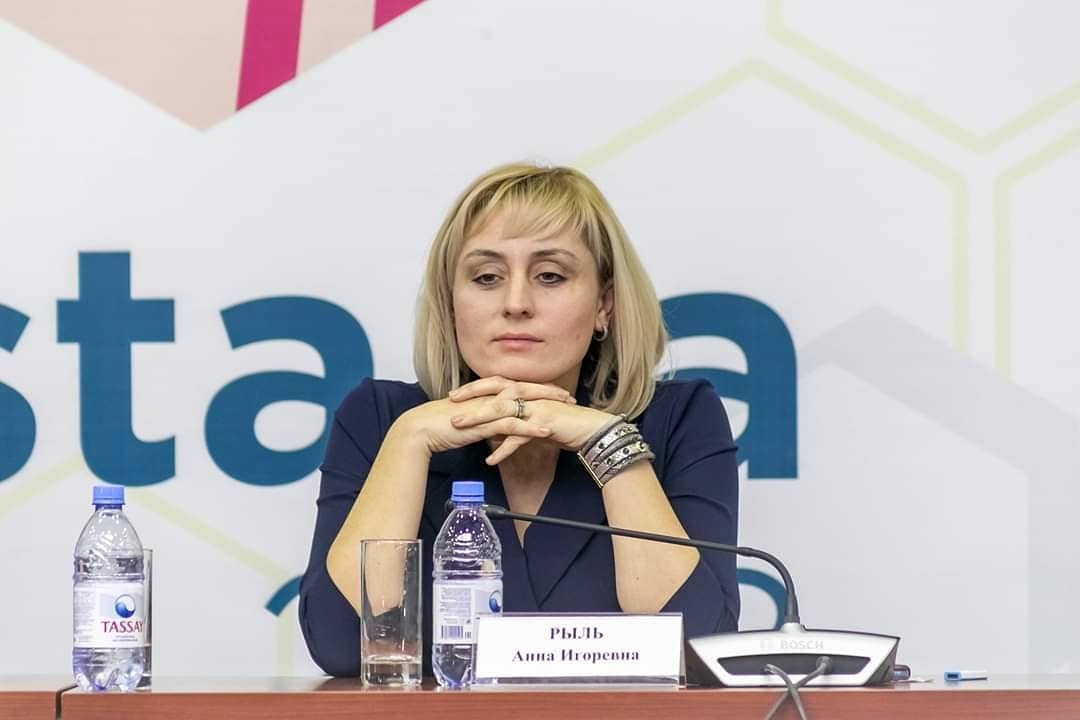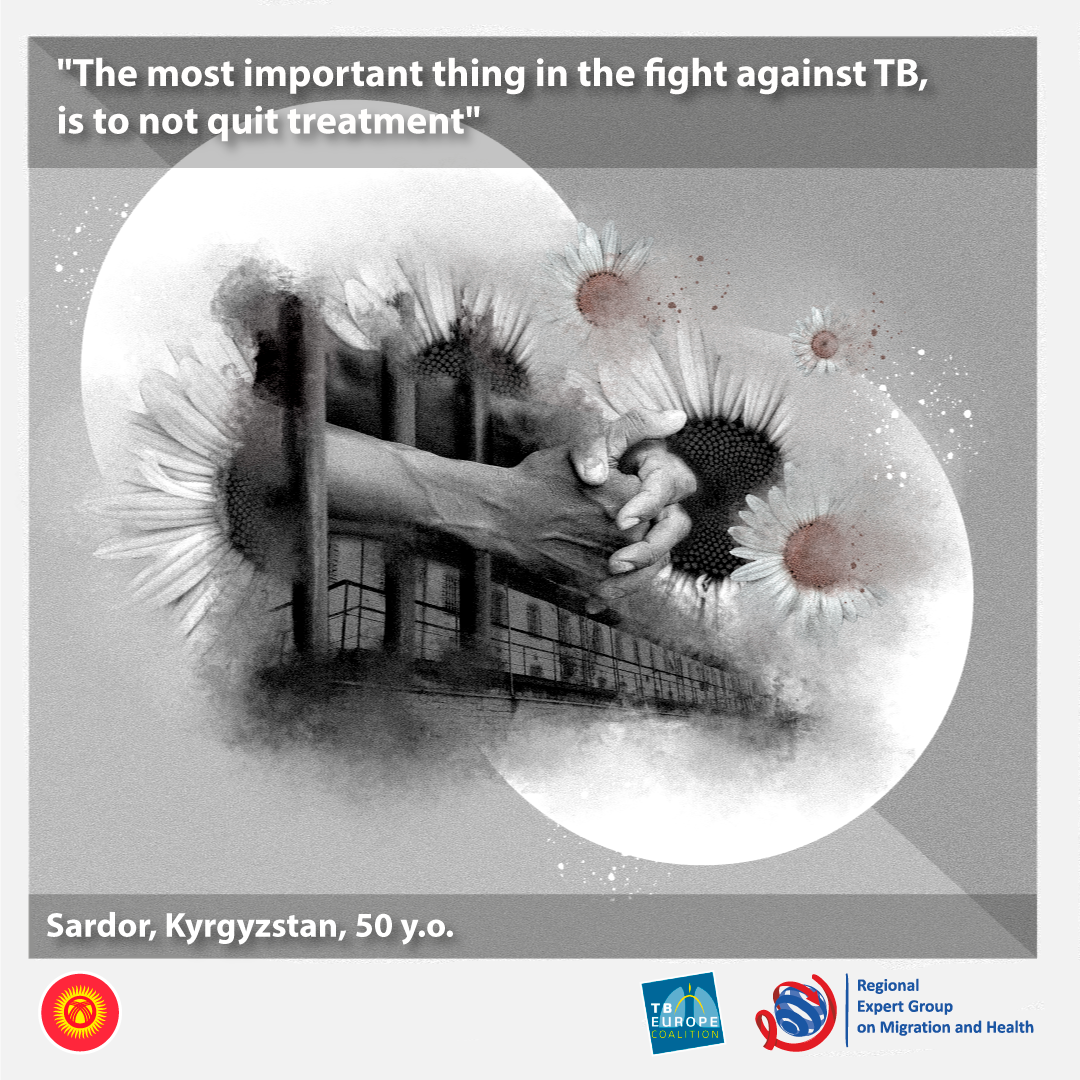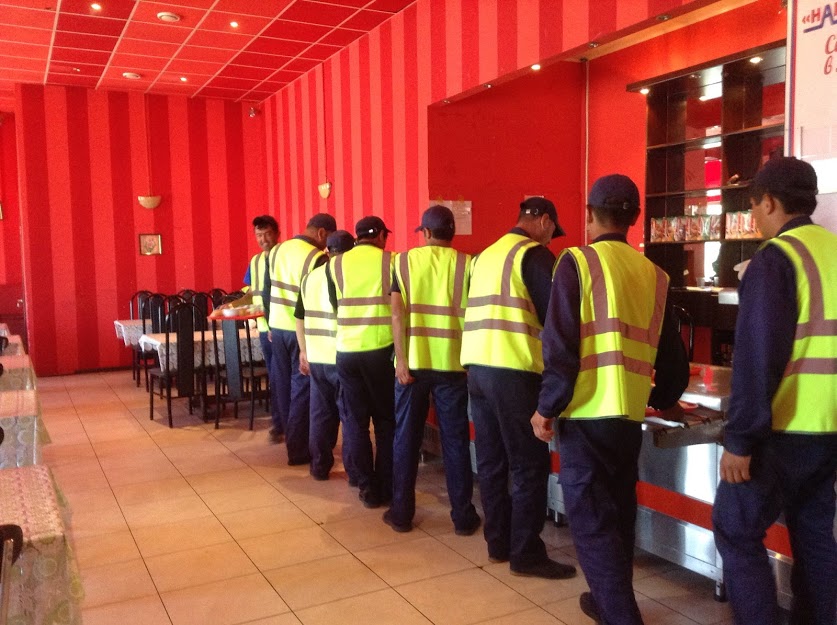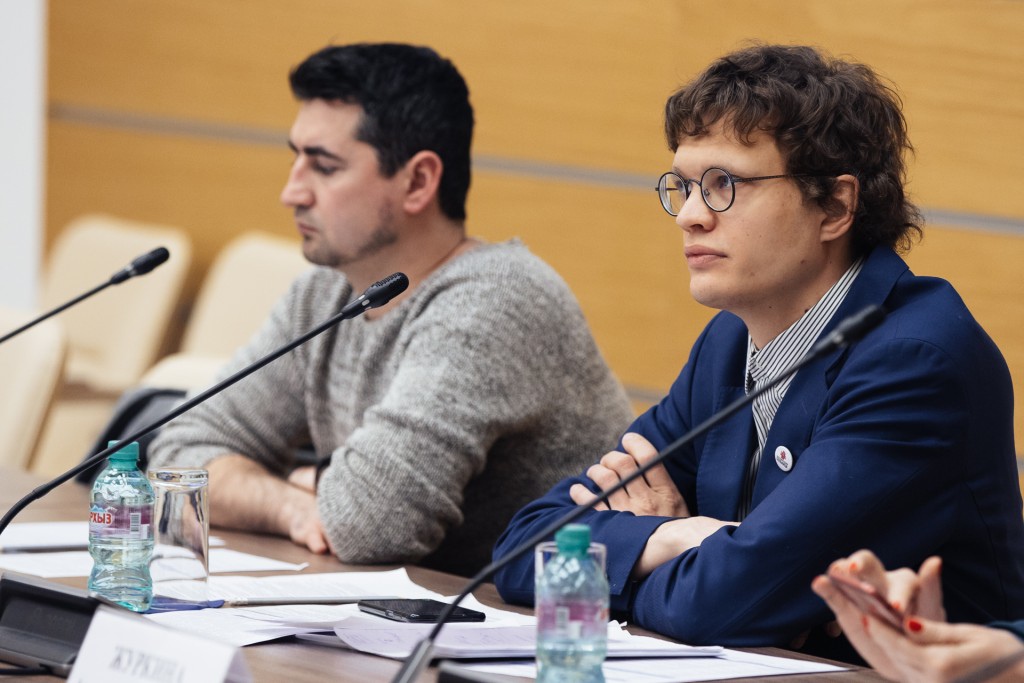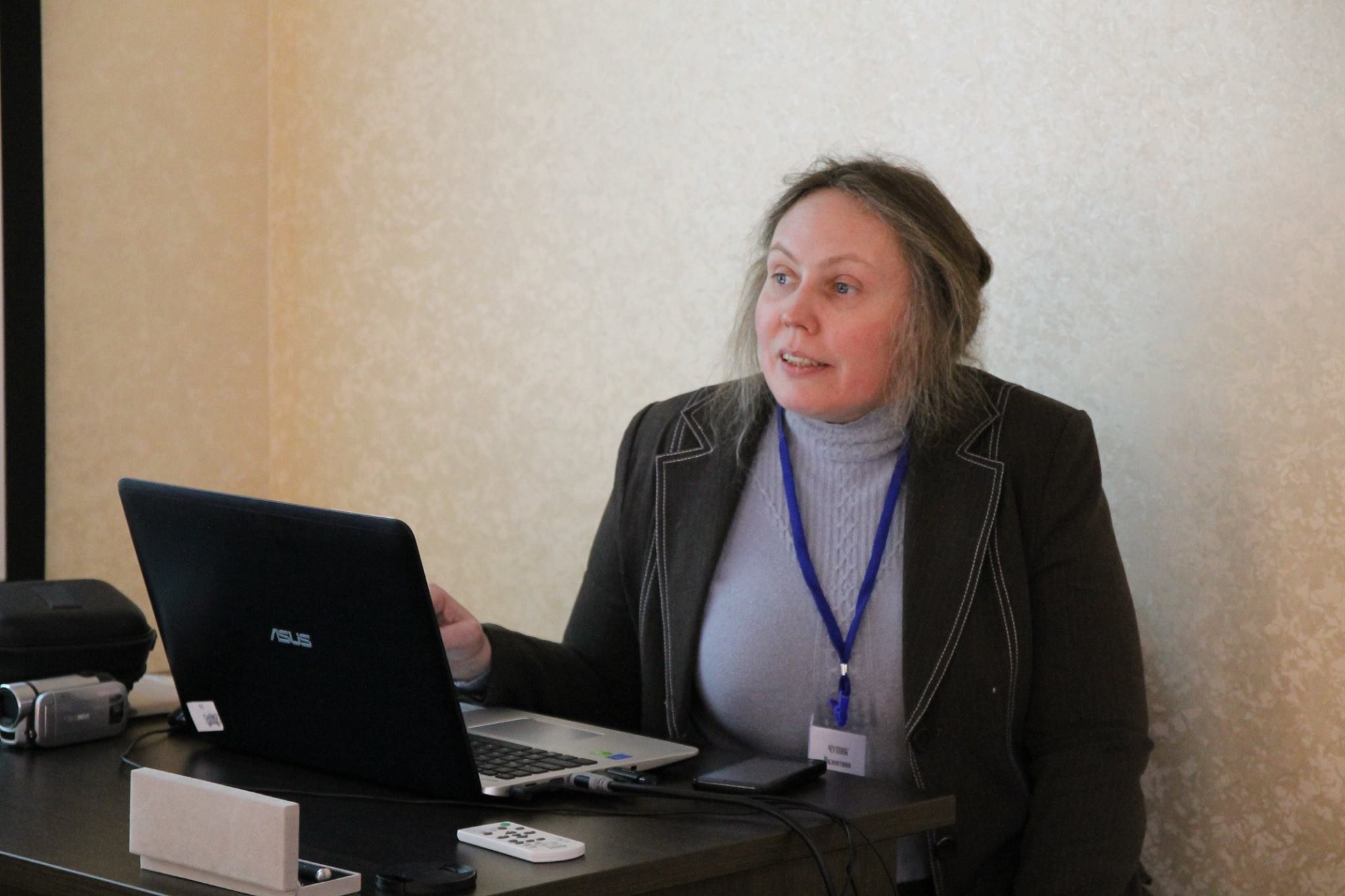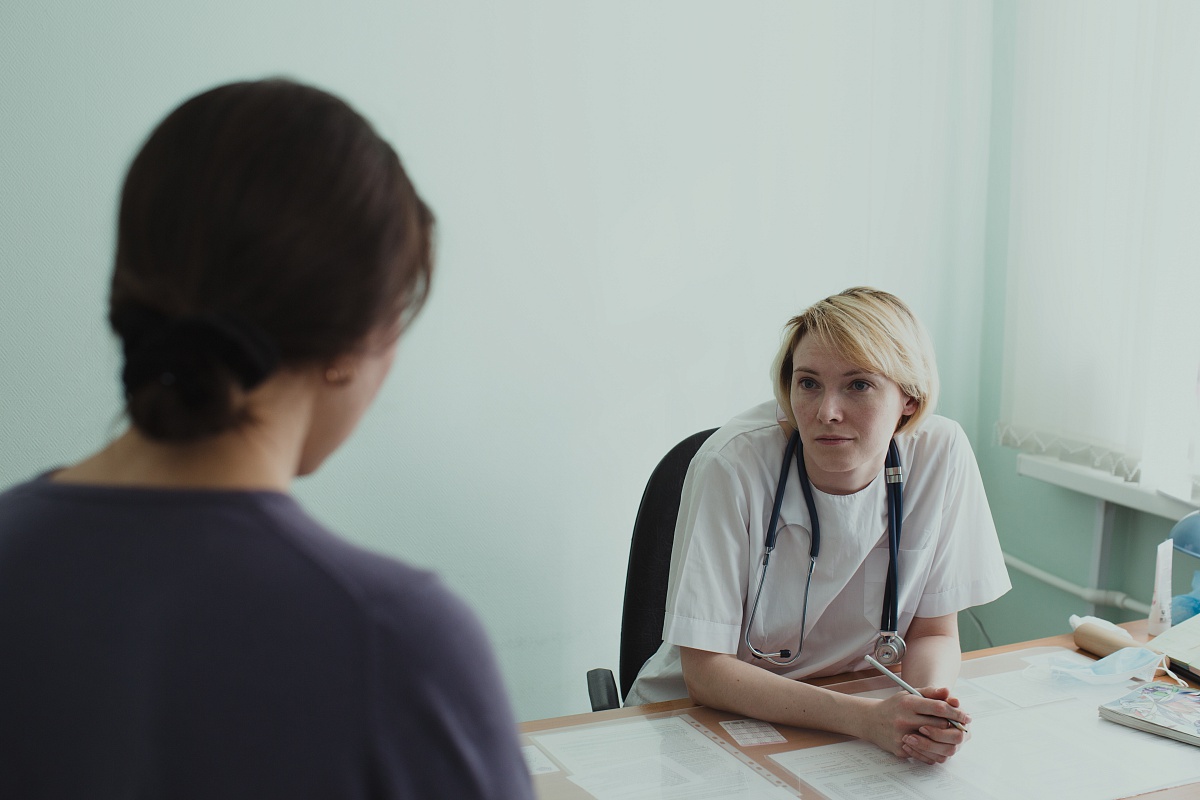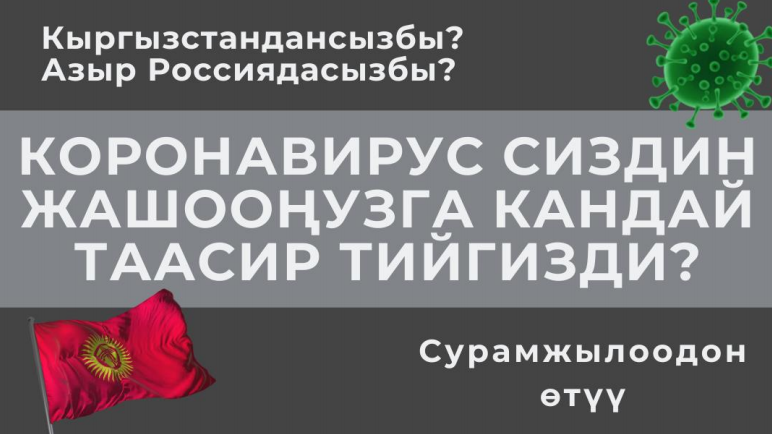I come from a poor family. We lived in a region of Georgia bordering Azerbaijan. My parents survived by growing vegetables in their own garden. They did not have higher education or good jobs. They did not want my brother and I to have the same lives as them, so they did not let us
Samira, Azerbaijan, 30 y.o.: “I know first-hand what happens if you interrupt treatment: the disease took two more years of my life”
